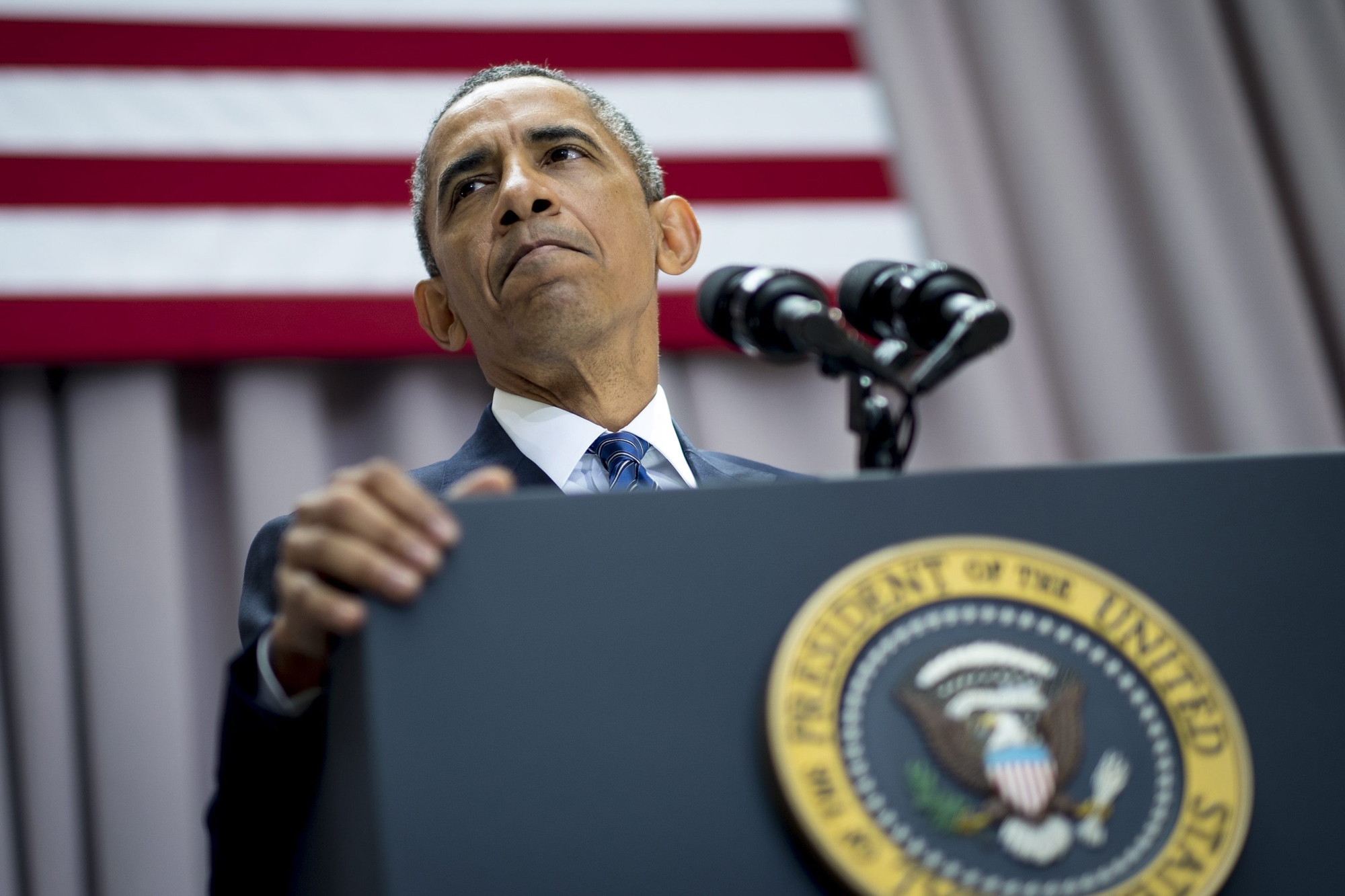by Adam Kredo • Washington Free Beacon
Senior Obama administration officials in their final days in office are seeking to cover up key details of the Iran nuclear deal from Congress, according to documents and sources who spoke to the Washington Free Beacon about continued efforts by the White House to block formal investigations into secret diplomacy with Tehran that resulted in a $1.7 billion cash payment by the United States.
As leading members of Congress petition the Obama administration for answers about what many describe as a $1.7 billion “ransom” payment to Iran, Obama administration officials are doubling down on their refusal to answer questions about the secret negotiations with Iran that led to this payment.
Sen. Marco Rubio (R., Fla.), a vocal opponent of last year’s nuclear deal with Iran, has been seeking answers from senior Obama administration officials since at least late September. However, officials continue to stonewall the senator’s inquiries, according to senior congressional sources and formal communications between Rubio and the State Department obtained by the Free Beacon.
Rubio and several other lawmakers have petitioned the Obama administration for documents and information about the secret negotiations that resulted in Tehran receiving $1.7 billion in cash and a promise from the United States to further roll back sanctions on an Iranian financial institution that helped finance the country’s illicit ballistic missile program.
A spokesman for Rubio told the Free Beacon that the administration’s continued obfuscation has motivated the senator to take steps to help President-elect Donald Trump kill the nuclear agreement once he enters office next year.
“Senator Rubio looks forward to working with President-elect Trump and his team to scrap this fundamentally flawed deal and hold Iran accountable for its cheating and regional aggression,” the spokesman said.
Rubio submitted a list of questions about the deal to Deputy Secretary of State Antony Blinken on Sept. 29 during a hearing aimed at examining these payments to Iran.
Blinken finally provided answers to these questions last week, but declined to address all specific questions Rubio posed about the secret negotiations over the $1.7 billion payment.
While the Obama administration has maintained for months that the payment was not part of a ransom package, the Free Beacon and other publications have disclosed in recent weeks that the United States did engage in secret diplomacy with Iran on a range of issues, including the release of American hostages and the $1.7 billion payment.
These issues were addressed in three separate agreements that were only finalized once the United States agreed to provide Tehran with the $1.7 billion payment. Secret documents stored on Capitol Hill and treated in a classified manner show that each of the agreements hinged on the cash payment, the Free Beacon first disclosed in October.
Rubio and other lawmakers have also sought answers from Attorney General Loretta Lynch, who would have played a role in signing off on the agreements. Lynch has declined to answer questions, prompting Rubio and Rep. Mike Pompeo (R., Kan.), the incoming CIA director, to accuse her of “pleading the fifth” before Congress.
The White House has not responded to similar questions submitted by Rubio on Sept. 10, and Treasury Secretary Jack Lew has not answered a series of queries posed on Oct. 25, according to sources who accused the administration of intentionally dodging congressional oversight.
Rubio asked Blinken to provide information on any U.S. official who signed off on the secret deals, and to specify if the agreements were part of the formal nuclear agreement or were inked separately. He also asked whether the deals were tied to the release of U.S. hostages.
Rubio hopes to obtain the name of the Iranian official or officials who signed these documents. Sources familiar with the deals and secret documents stored on Capitol Hill told the Free Beacon it is likely the United States inked these deals with a representative of Iran’s intelligence apparatus.
Blinken did not provide firm answers to any of these questions, according to a copy of his formal communication to Rubio viewed by the Free Beacon. He maintained that the cash payment was part of a decades-old legal dispute with Tehran before the international claims tribunal at the Hague.
“The timing of the Hague settlement was a consequence of the United States taking advantage of the opening of diplomatic opportunities with Iran on several fronts simultaneously, including the opportunity to minimize litigation risk with respect to Iran’s contract claims arising under the U.S.-Iran Foreign Military Sales (‘FMS’) Program,” Blinken wrote, repeating a talking point issued by several Obama administration officials.
The payment was not a ransom, Blinken said.
“Regarding the allegations that this settlement constituted ransom to free American citizens who were released from prison in Iran on January 17, the Administration has repeatedly made it clear since January, and President Obama recently reiterated, that this settlement did not constitute ransom and that the United States has not and will not pay ransom,” he wrote. “Upon Iran’s release of several unjustly detained Americans, the United States provided relief to certain Iranian citizens charged with primarily sanctions-related crimes, several of whom are dual U.S.-Iranian nationals, as a one-time reciprocal humanitarian gesture.”
